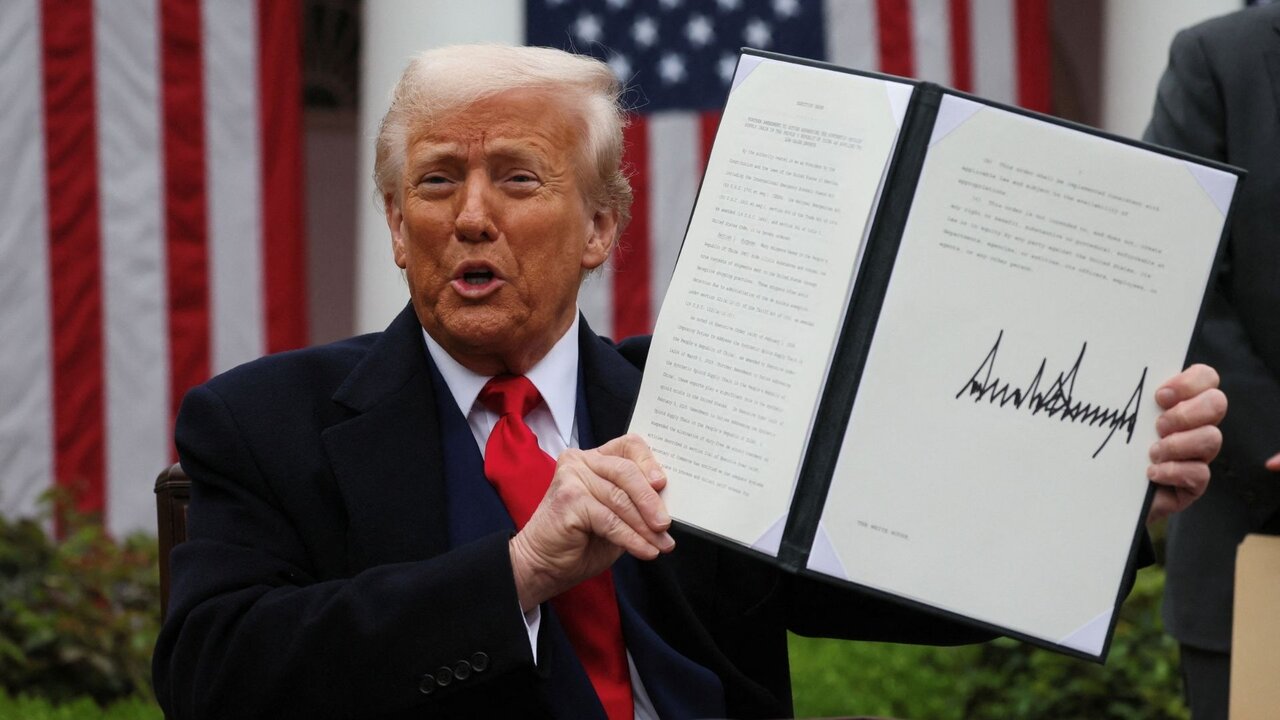Chinas tech revolution will leave Trump tariffs in the dust
China’s tech revolution will leave Trump tariffs in the dust
BEIJING - The recent announcement by US President Donald Trump regarding new tariffs on China clearly suggests that he is engaging in unrealistic and impractical planning.

On Wednesday, Trump unveiled 54 percent tariffs on all Chinese exports to the United States. His announcement added 34 percent so-called “reciprocal” tariffs to existing 20 percent duties on all Chinese imports to the US.
Since returning to the White House on January 20, Trump had already levied two tranches of 10 percent additional duties on all Chinese imports. The additional levy will take effect on April 9.
China has strongly condemned the new US tariffs.
“This gravely violates WTO rules, and undermines the rules-based multilateral trading system. China firmly rejects this and will do what is necessary to defend our legitimate rights and interests,” Foreign Ministry Spokesperson Guo Jiakun said on Thursday.
Guo added, “We have emphasized more than once that trade and tariff wars have no winners. Protectionism leads nowhere. We urge the US to stop doing the wrong thing, and resolve trade differences with China and other countries through consultation with equality, respect and mutual benefit.”
The Chinese Ministry of Commerce also denounced Washington’s “unilateral bullying” practices.
“The so-called reciprocal tariffs determined by the US based on subjective and unilateral assessments violate international trade rules, seriously harm the legitimate rights and interests of relevant parties, and represent a classic case of unilateral bullying practices,” the ministry said.
It noted that “China firmly opposes this and will resolutely take countermeasures to safeguard its own rights and interests. There are no winners in trade wars, and there is no way out for protectionism.”
Trump claims that these tariffs would allow the United States to economically flourish. He argues that they are necessary to address trading imbalances and to protect American jobs and manufacturing.
**Trump on a wild goose chase **
Trump initiated a trade war against China when he returned to power more than two months ago. Trump’s trade conflict with China is in fact rooted in his mindset and misconceptions about the Asian country.
It is crystal clear that US tariffs on Chinese goods will ultimately increase prices for American consumers. China has already responded to US tariffs and increased import duties by up to 15 percent, covering a number of American agricultural and food products. The US has historically been vulnerable to China targeting its agricultural exports. China brought in nearly $30 billion worth of agricultural products from the US last year. Undoubtedly Trump’s trade war will work to the detriment of American farmers.
But this is just the tip of the iceberg for the United States.
As a journalist from Iran and the representative of the Tehran Times, I have been in China since February 24 as part of a media exchange initiative that will last until July. During my time here, I have toured numerous Chinese companies in both Beijing and Hainan Province and gained direct insights into China’s significant advancements, in particular in the technology sector. From my observations and experiences on the ground, it is abundantly clear that the US trade war and tariffs on China amount to a wild goose chase.
Trump's tariffs may negatively impact Chinese manufacturing; however, they are unlikely to effectively halt or replace it in a straightforward manner. China's trade relationships with Southeast Asia, Latin America, and Europe have been expanding, allowing it to discover new markets for its exports.
Likewise, Chinese manufacturing facilities have the capability to produce high-quality technology in substantial volumes at a reduced cost. China is transitioning its emphasis from the manufacturing of apparel and footwear to cutting-edge technologies, such as robotics and artificial intelligence (AI), which has become a significant concern for Washington.
China's tech smarts, especially in robotics and AI, will turn the tables and dodge the tariff bullet. Robots are changing the game. They're making factories faster and cheaper. AI is more than just a buzzword. It's giving Chinese companies an edge. They're using it to make better products and run their businesses smarter. This helps China sidestep the tariff pain.
China's technological advancement is reshaping the global landscape. China is emerging as a leading force in robotics, artificial intelligence, 5G technology, and electric vehicles. These developments will compel Trump to bite the bullet and seek resolution of his trade conflict with Beijing through diplomatic discussions.
source: tehrantimes.com